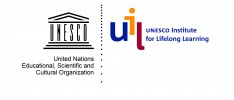The December 2018 issue of the International Review of Education – Journal of Lifelong Learning (IRE) looks at narrative approaches to researching literacy and non-formal education in Africa and Asia. It features six articles from South Africa, Tanzania, the Philippines and Sri Lanka. More...
Cedefop Non-formal and informal learning - Coordination of stakeholders
 The recommendation emphasises the importance of coordination of and appropriate information on validation. The Member States are invited to ‘promote the involvement in the development and implementation of the elements and principles […] of all relevant stakeholders, such as employers, trade unions, chambers of industry, commerce and skilled crafts, national entities involved in the process of recognition of professional qualifications, employment services, youth organisations, youth workers, education and training providers, and civil society organisations’. The Member States are furthermore called to ‘promote coordination on validation arrangements between stakeholders in the education, training, employment and youth sectors, as well as between those in other relevant policy areas’ (Council of EU, 2012, p. 4, points 4 and 5). More...
The recommendation emphasises the importance of coordination of and appropriate information on validation. The Member States are invited to ‘promote the involvement in the development and implementation of the elements and principles […] of all relevant stakeholders, such as employers, trade unions, chambers of industry, commerce and skilled crafts, national entities involved in the process of recognition of professional qualifications, employment services, youth organisations, youth workers, education and training providers, and civil society organisations’. The Member States are furthermore called to ‘promote coordination on validation arrangements between stakeholders in the education, training, employment and youth sectors, as well as between those in other relevant policy areas’ (Council of EU, 2012, p. 4, points 4 and 5). More...




/https%3A%2F%2Fprofilepics.canalblog.com%2Fprofilepics%2F1%2F0%2F1076071.jpg)